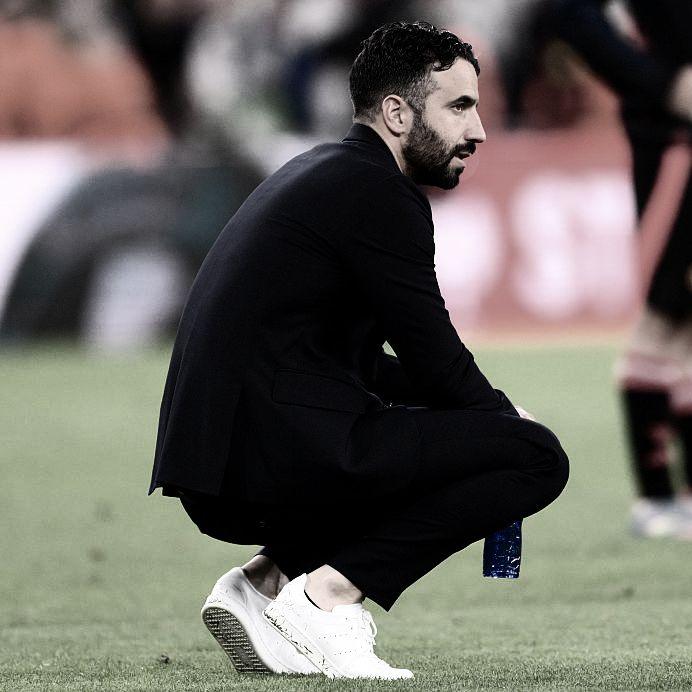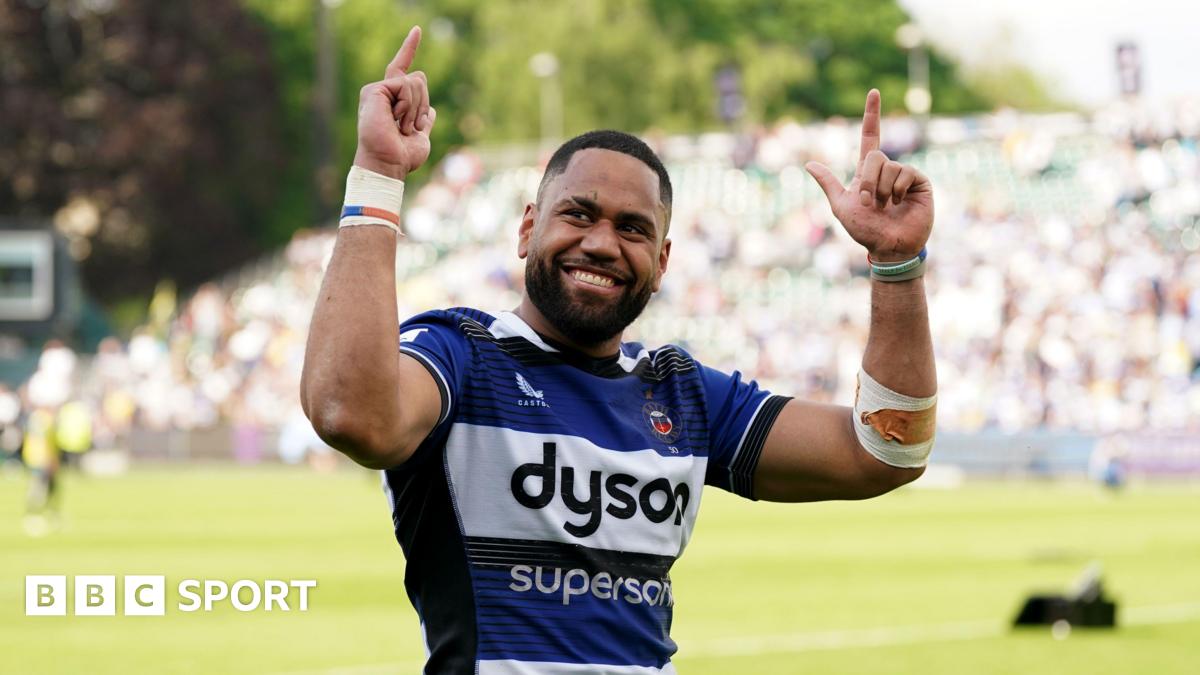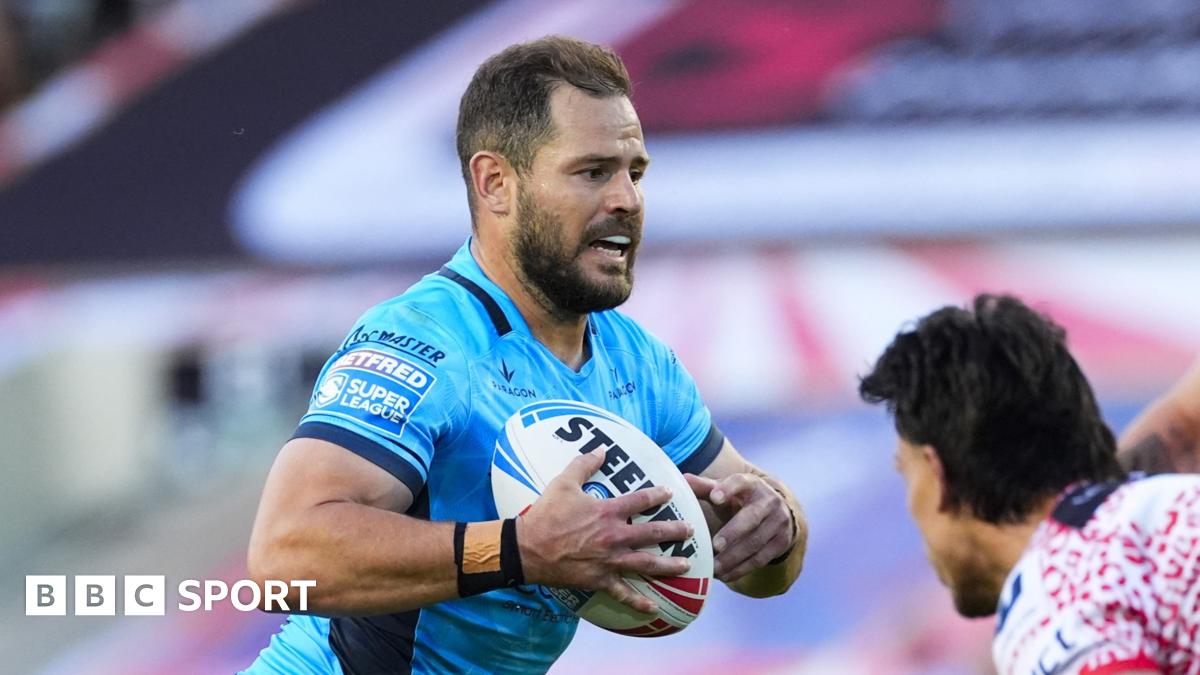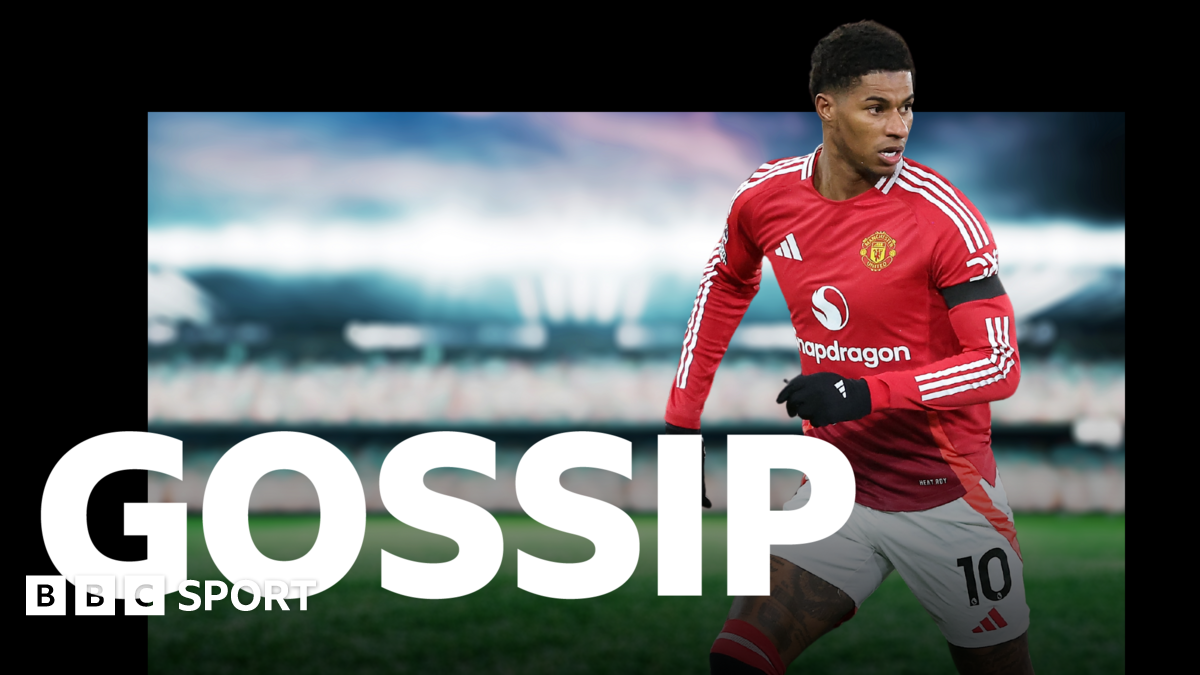ARTICLE AD BOX
 Image source, Getty Images
Image source, Getty Images
Chief football news reporter, in Bilbao
Manchester United were putting on the bravest of brave faces as they headed out of Bilbao at lunchtime on Thursday.
Yes, the club remain solidly behind head coach Ruben Amorim - who had said after the match that if the ownership or the fans did not want him, he would leave "the next day", without talking about compensation.
Yes, the club have a Plan B when it comes to transfers and will be in a position to reshape Amorim's squad this summer.
And yes, the club still believe they will return towards the upper end of the English game in the not-too-distant future.
But there are some basic realities words alone will not solve.
After losing 1-0 to Tottenham in Bilbao, knowing there will be no European football of any kind next season and with losses still high despite a second round of redundancies, there are significant questions for United to answer.
Here we assess what the defeat means for their finances, transfer plans, on who might leave and for Amorim.
What does it mean for their finances?
At some point between now and the beginning of July, United will announce their third quarter financial results to the New York Stock Exchange.
This will be an opportunity to address any monetary issues for the 2025-26 season that have arisen because of the defeat in Spain.
We know for certain United will experience a £10m reduction in payments from their £900m, 10-year sponsorship deal with Adidas because they have missed out on the Champions League. As that penalty is spread over the length of the contract, which runs to 2035, the damage on an annual basis is not onerous. But few would look at this season and be confident of United returning to the Champions League in 2026-27 and therefore avoiding another penalty.
Beyond that, there is the issue of Premier League prize money. Each place in the table is worth £3m. That means, in their current position of 16th, United would receive £33m less than for finishing fifth.
The club make about £4.3m in gate receipts for every home game at Old Trafford - and there would have been at least four more of those in the league phase of the Champions League.
Add in the generous prize money on offer in Europe's elite competition, and that is how we have calculated that Wednesday's defeat by Tottenham has, at a conservative estimate, cost United £100m.
As has been widely reported, a second round of redundancies is on the way, this time affecting the football department. The reductions are like to affect the scouting, medical and science teams.
There has been no word on whether that is likely to be the end of the matter. But it is clear, from axing of staff trips, free lunches and other perks, nothing is off limits in Sir Jim Ratcliffe's determination to make United a leaner organisation.
But these cost-cutting initiatives can only do so much. As with any Premier League club, by far the biggest expenditure is on transfer fees and player wages. If this season is any guide, United, who have spent in excess of £900m on transfers over the past five years and whose last annual wage bill they confirmed at £365m, have been awful at both of these fundamental elements.
Man Utd players reflect on Europa League final defeat
What does it mean for their transfer budget?
United say funds will be available, but what does that mean?
There are a few factors at play. As Ratcliffe outlined in March, they owe £272m in outstanding transfer fees, a significant percentage of which - £156m - is due this summer.
Overall losses to June 2024 were £113.2m. Since then, United spent £14.5m sacking former manager Erik ten Hag and his staff.
Despite this, no-one at United is rejecting the widespread belief Wolves forward Matheus Cunha is going to join in the summer.
The Brazilian has a release clause of £62.5m. Quite how much of that has to be paid immediately is not known. However, it is difficult to see how it cannot at least in part be funded by player sales.
Now for the unquantifiable bit. The better - and faster - United can sell, the more flexibility they will have to buy. The longer it goes, the less easy it becomes to strike deals for the right price and the potential for mistakes grows.
Arguably, United are still paying massively for the summer of 2022 when Ten Hag arrived and demanded the club bring in Frenkie de Jong from Barcelona.
United officials quickly concluded it was an impossible deal to complete. Ten Hag argued otherwise.
After the attempt was eventually aborted, the season started with a home defeat by Brighton and a four-goal hammering at Brentford. United were panicked into spending £150m on Casemiro and Antony, neither of whom has come close to providing value for money and remain under contract heading into next season.
What does it mean for who might leave?
There is an ideal and a realistic view of this.
In the past, United have ringfenced players who they regarded as off-limits to other clubs. I doubt there is anyone in that bracket now - and that includes captain Bruno Fernandes, even though the club did say they weren't interested in selling the 30-year-old Portugal playmaker when recent interest from the Saudi Pro League surfaced.
First, the easy bit. The contracts of Victor Lindelof and Christian Eriksen run out in the summer. They will not be renewed.
After that, it gets harder.
Marcus Rashford accepts he will not play for United again while Amorim remains in charge. But he is in no rush to decide his future and is not interested in taking a wage cut. Barcelona have declared their interest but are hardly cash rich. Rashford might be keen on a move to the Nou Camp but it is difficult to imagine a deal could be concluded swiftly.
What happens if Chelsea activate the £5m clause in their deal with United over Jadon Sancho and send him back to Old Trafford?
After controversial social media posts around the final, Alejandro Garnacho and his family appear to have put themselves on a collision course with Amorim. Chelsea were keen on the Argentina forward in January. United are bound to listen if they come back.
There have been murmurings around Andre Onana from the Saudi Pro League but nothing concrete has materialised. Onana's deputy Altay Bayindir knows he will remain as second choice and is likely to move on.
But what of established highly-paid stars such as Casemiro, Harry Maguire and Luke Shaw? Or more recent recruits such as Manuel Ugarte and Mason Mount? Or players who have been forgotten about, such as Tyrell Malacia or Antony, who has enjoyed a successful loan at Real Betis? And that is without mentioning the underperforming, expensive striking duo Rasmus Hojlund and Joshua Zirkzee. Returns to Italy have been suggested for them. But both are earning more than they did when they were at Atalanta and Bologna respectively.
Logic says only a minority of these players will leave, much as United might wish otherwise.
What does it mean for Amorim?
I’ll leave without compensation if board feel I'm not right – Amorim
The speed with which United issued support for Amorim in the wake of his post-match declaration was telling but the former Sporting coach knows the spotlight on him is fierce now.
He has said he feels his players are getting to grips with what he wants from them and there are definite signs of a structure and tactical patterns that were not evident in his first few weeks at the club.
In one first-half move on Wednesday, United manipulated a situation that allowed Casemiro to deliver a 60-yard crossfield pass, from right to left, over to Patrick Dorgu, who was in space by the touchline. Nothing came of the attack but it was an example of what Amorim is looking for.
But he knows, as does everyone else, that clubs of United's size cannot lose consistently without consequence. A tally of six league wins in 26 games is simply not good enough.
There is no league with the strength in depth of the Premier League, underlined by what has happened to United this season.
However, if Real Madrid, Barcelona, Bayern Munich or any of the big Italian clubs had a comparable campaign, it is pretty certain that, not only would the guy who started the season get axed, in all probability, the person who followed him would as well.
Amorim seems safe from that fate. But unsubstantiated rumours hang around of players not being happy with his methods. A couple of thoughtful trophy-winning former United players wonder how effective it can be having a coaching staff that, in some cases, is both younger and less experienced than the players they are attempting to work with.
Having the support of the ownership is one thing. The reality is Amorim must start winning quickly next season. The vultures are circling now. It will not take much for them to go for their prey.
Once Sunday's game with Aston Villa is over, United leave for a two-game tour of Asia.
I cannot for one second think that any of the club's established first-team players are relishing the prospect.
But Amorim has said, and others acknowledge, that the first team can have no argument over United taking unpopular decisions to generate more income - up to £10m in this instance - to make up for this season's shortfall.
There is another 'Super League' club who have failed to secure European qualification for next season - Italian giants AC Milan. Do not be surprised if at least one friendly is arranged in a neutral country at some convenient point in the calendar.
The positive spin of no Europe means more chance to work on the training ground.
The negative, potentially, is that more of what is going on behind the scenes will make its way into the media because the season is not being punctuated by regular midweek matches and press conferences.
That is the thing with Manchester United. They are big news. They generate debate. Even when they are not very good, people still talk about them.

 3 hours ago
3
3 hours ago
3








 English (US) ·
English (US) ·